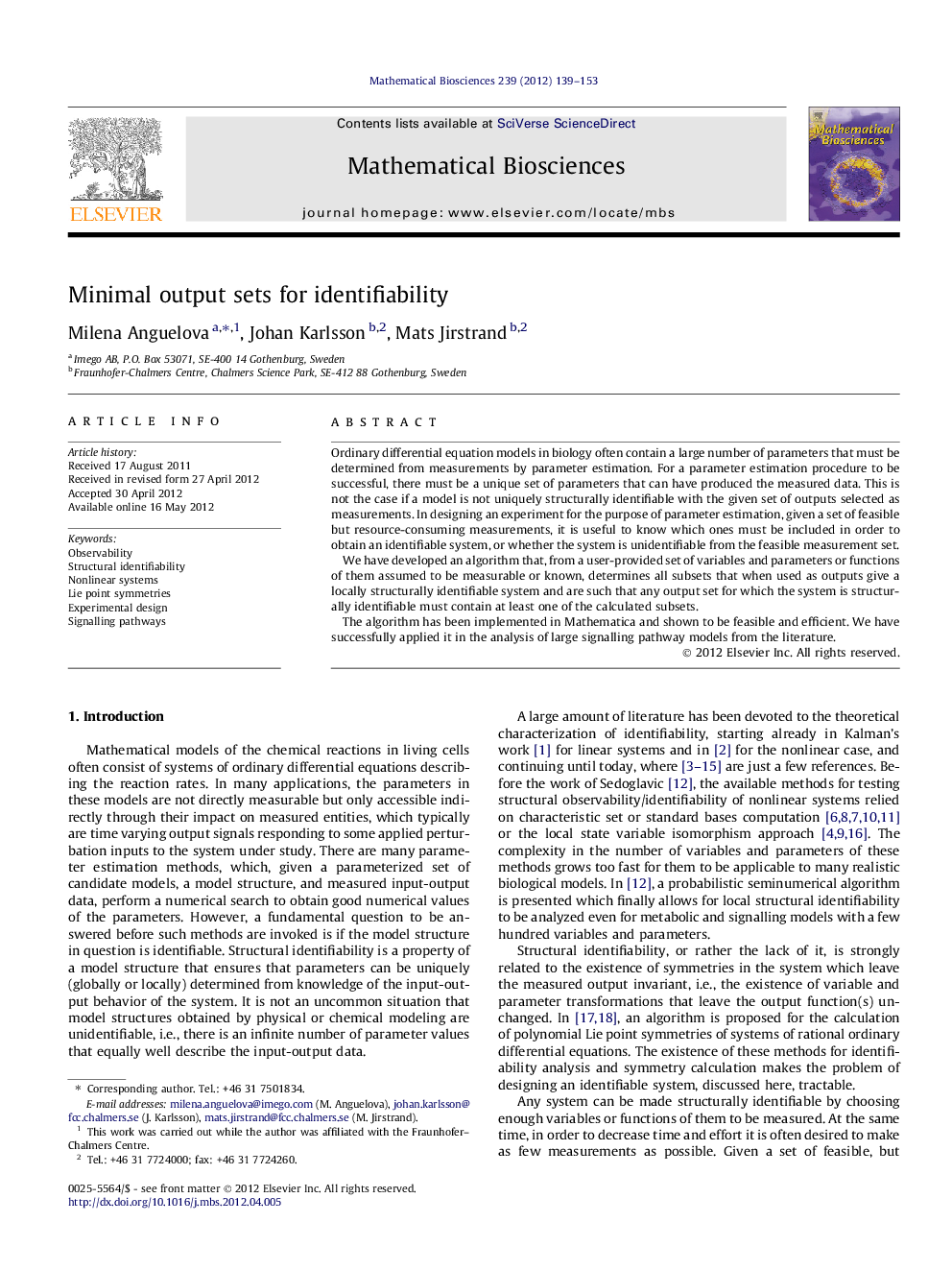| Article ID | Journal | Published Year | Pages | File Type |
|---|---|---|---|---|
| 4500281 | Mathematical Biosciences | 2012 | 15 Pages |
Ordinary differential equation models in biology often contain a large number of parameters that must be determined from measurements by parameter estimation. For a parameter estimation procedure to be successful, there must be a unique set of parameters that can have produced the measured data. This is not the case if a model is not uniquely structurally identifiable with the given set of outputs selected as measurements. In designing an experiment for the purpose of parameter estimation, given a set of feasible but resource-consuming measurements, it is useful to know which ones must be included in order to obtain an identifiable system, or whether the system is unidentifiable from the feasible measurement set.We have developed an algorithm that, from a user-provided set of variables and parameters or functions of them assumed to be measurable or known, determines all subsets that when used as outputs give a locally structurally identifiable system and are such that any output set for which the system is structurally identifiable must contain at least one of the calculated subsets.The algorithm has been implemented in Mathematica and shown to be feasible and efficient. We have successfully applied it in the analysis of large signalling pathway models from the literature.
► Large nonlinear biological models are considered. ► We treat the problem of experimental design for parameter estimation purposes. ► We provide an efficient algorithm to find measurement sets that give a locally structurally identifiable system. ► The algorithm is implemented in Mathematica. ► The algorithm is applied to well-known large signalling pathway models from the literature.
